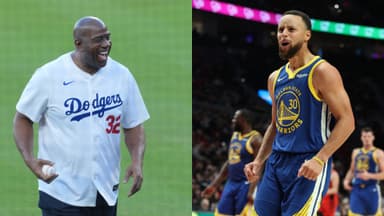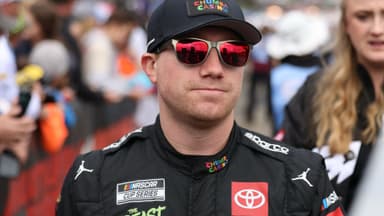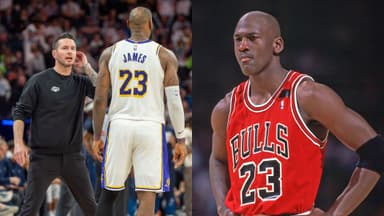Magic Johnson hasn’t played an NBA game in nearly three decades, but he’s still omnipresent to basketball fans through his frequent TV appearances, his viral tweets, and the depictions of him in mass media. One of those was in the HBO series Winning Time: The Rise of the Lakers Dynasty, in which Magic was played by Quincy Isaiah. Another was They Call Me Magic, an Apple TV+ documentary that the Lakers legend says was inspired by The Last Dance, Jason Hehir’s incredible documentary on the final season of the Michael Jordan-era Chicago Bulls.
Advertisement
The Last Dance came out during the height of the COVID-19 pandemic at a time when people were starved for something good to watch. To everyone not named Scottie Pippen, it absolutely delivered, giving an inside glimpse into the denouement of a dynasty while giving the world several iconic memes that live on to this day.
Magic was mostly the one feeding Jordan assists on the 1992 Dream Team, but The Last Dance turned the tables by allowing MJ to help his fellow basketball legend.
“The reason we did it is because when Michael did ‘The Last Dance,’ my phone just started ringing,” Magic told Variety in 2022. “They said, ‘When are you coming out with yours?’ And we got some great investors, great partners, great producers, and they really took it to another level.”
They Call Me Magic is broken into four parts, but unlike The Last Dance, it focuses less on one Lakers season and more on Magic’s life dating back to his childhood in Lansing, Michigan.
Today, Magic is a billionaire and one of the most successful athlete-turned-entrepreneurs in history, but he came from humble beginnings.
Magic Johnson grew out of poverty to become a legend
Johnson grew up in a three-bedroom house with his parents and nine siblings, which naturally meant that he had to make due without some of the finer things in life. To him, that meant going without the newest and most sought-after sneakers, such as Dr. J’s signature shoe or the Clyde Frazier Pumas.
Instead, he had to shop the discount rack for his basketball kicks, and it was tricky to find his size. “You had to pick your own sneakers for $1.99,” Magic once said during a 2014 speaking engagement. Although some of his friends did have flashier shoes, it didn’t matter once Magic and his talent took the court. “But you know what? I was wearing them out in those $1.99 specials,” he said.
Magic has done so much great charity work in his life, not only to raise awareness and money to help the fight against HIV and AIDS but also to help kids in similarly disadvantaged situations as the one he grew up in. The Magic Johnson Foundation, which he founded in 1991, helps over 250,000 people each year.
In February, Magic was named by California governor Gavin Newsom to the Rebuilding Commission aimed at aiding recovery efforts from the California wildfires with a focus on the less affluent Altadena neighborhood.








